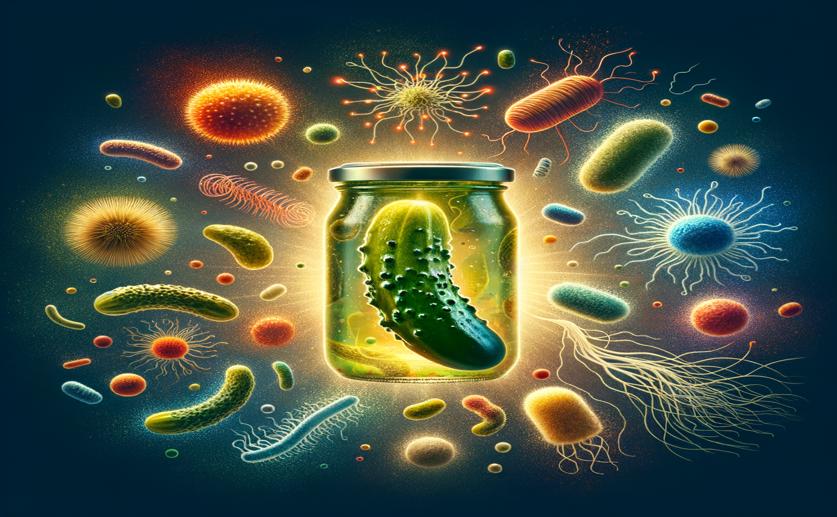
Boosting Pickle Flavor with Special Bacteria
Jenn Hoskins
20th April, 2024

Image Source: Natural Science News, 2024
Key Findings
- Study conducted at Ege University found probiotics can survive in pickles using microencapsulation
- Encapsulated probiotics remained viable in pickles for at least four weeks, supporting gut health
- Probiotic pickles maintained taste and quality, making them appealing to consumers
References
Main Study
1) The Use of both Free and Microencapsulated Lactiplantibacillus plantarum and Pediococcus parvulus in Cucumber Pickles
Published 18th April, 2024
https://doi.org/10.1007/s11947-024-03400-5
Related Studies
2) Effect of lecithin and starch on alginate-encapsulated probiotic bacteria.
3) Survival and Growth of Probiotic Lactic Acid Bacteria in Refrigerated Pickle Products.



 20th January, 2024 | David Palenski
20th January, 2024 | David Palenski